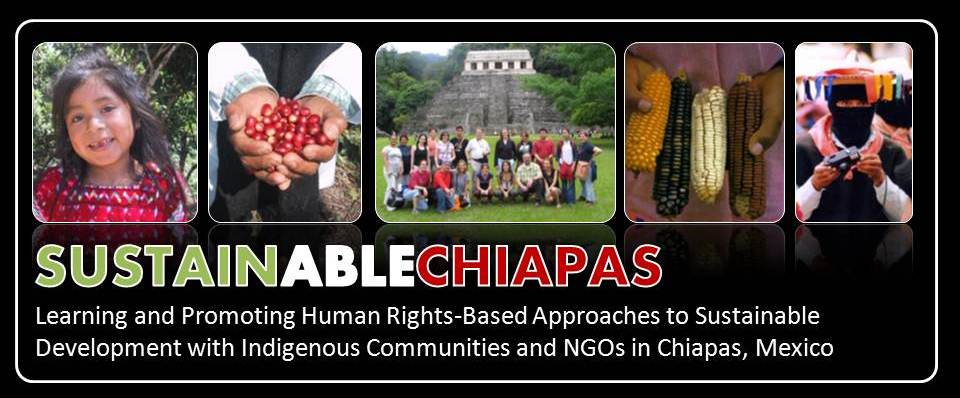 When you arrive in San Cristobal de Las Casas you are immediately greeted by a picturesque colonial town full of architectural beauty, commerce, and history. You are also immediately greeted by an obvious disparity of wealth. There is great wealth visible in Chiapas, as well as great poverty. The colonial facades of San Cristobal speak of both the past and the future of the region. The grandiose architecture in San Cristobal reminds you of the colonial significance of the city. It also reminds you of how that importance was achieved thanks to the blood and sweet of a population that still remains. Mexico is a country that embraces their colonial past by conserving what the Mestizo majority considers appropriate traditions, and denying those that are considered other. Having Mexican parents, I know too well that most Mexicans tend to think of indigenous peoples as a part of the past; relics that must be remembered as such rather than a population that has contributed significantly to modern Mexico. This attitude has lead to a dangerous indifference and denial of Indigenous peoples in Mexico.
When you arrive in San Cristobal de Las Casas you are immediately greeted by a picturesque colonial town full of architectural beauty, commerce, and history. You are also immediately greeted by an obvious disparity of wealth. There is great wealth visible in Chiapas, as well as great poverty. The colonial facades of San Cristobal speak of both the past and the future of the region. The grandiose architecture in San Cristobal reminds you of the colonial significance of the city. It also reminds you of how that importance was achieved thanks to the blood and sweet of a population that still remains. Mexico is a country that embraces their colonial past by conserving what the Mestizo majority considers appropriate traditions, and denying those that are considered other. Having Mexican parents, I know too well that most Mexicans tend to think of indigenous peoples as a part of the past; relics that must be remembered as such rather than a population that has contributed significantly to modern Mexico. This attitude has lead to a dangerous indifference and denial of Indigenous peoples in Mexico.The awareness of how environmental, economic, gender, religion, and political issues affect everyday life in Chiapas is essential to addressing the root causes of the economic poverty my colleagues and I witnessed a few weeks ago in Chiapas. Aid alone will not alleviate problems in Chiapas. The problem is not just the economic poverty that is visible to all those who visit Chiapas. Instead, poverty is a terrible symptom of greater issues. There are rights and freedoms that are being denied to the indigenous Chiapanecos in the name of development. Education is denied, land is denied, cultural freedom is denied, and even the right to worship is denied. Denial of these rights is at the center of economic poverty and the rebellion that occurred in Chiapas January 1st 1994.
Still, all is not lost in Chiapas. I saw many signs of hope and optimism for the future. In fact, these are the most memorable images of Chiapas in mind. Organizations and communities are creating new models of development based on different metrics of success. Amartya Sen reminds us that income deficiency is often connected to a deficiency of capabilities. In fact, it is only when people have substantive freedoms that they are on a path toward true development. This is a point I found particularly significant while in Chiapas because it was repeated by all organizations in one way or another. The organizations and communities we met, especially the EZLN community, mentioned rights and dignity as necessary elements for development.
Organizations like the women’s cooperative K’inal Anzetik are working toward the empowerment of women by creating new job and educational opportunities for them. Melel Xojoban is another organization planting the seeds of progress and empowerment for the future. Melel Xojoban is a human rights organization that focuses on indigenous children’s rights and participation. Both organizations are providing the tools and support for the indigenous people of Chiapas to define their own futures. Knowledge is something that no government, multinational corporation, or paramilitary can take from a person.
For more information:
Melel Xojobal
http://melelxojobal.org.mx/
K'inal Antzetik
http://kinal.laneta.apc.org/maskinal.htm
Sen, Amartya. Development as Freedom. New York, 2000. 14
